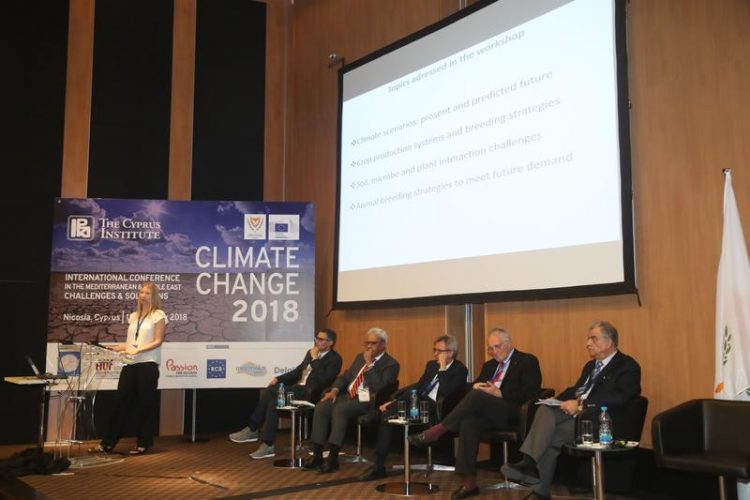In focus: Climate adapted plants

Dr Kerstin Neumann talks about plant yields under heat and drought stress. Climate Change Conference
Former French Prime Minister Laurent Fabius referred in an impressive speech to the alarming signs of climate change. Many scenarios indicate that as early as 2050 the threshold of a 2 °C increase in the global temperature will be passed.
Politicians and scientists have set this value as the maximum limit – but until 2100. So it is very likely that we will miss this target. In addition, climate-damaging CO2 emissions rose again in 2017 after they had been stable for some time. Likewise, the goals of reducing global greenhouse gases were missed.
Against this background, Dr. Kerstin Neumann from Leibniz-Institute of Plant Genetics and Crop Plant Research presents the research results on the formation of biomass under dry stress conditions in cereals in the workshop “Agriculture and animal husbandry in a changing climate”.
Already without climate change, agricultural production faces enormous challenges in food security in the wake of the world's growing population. The required increases in production need to be achieved under increasingly difficult climatic conditions, notably heat and drought stress. Cyprus will be one of the regions hit hardest by climate change.
In order to meet these challenges, as part of an EU project AGRICYGEN, which is being planned, the establishment of a modern research center is planned, which will primarily deal with questions of animal and plant breeding.
Here, the IPK is one of the leading institutes in plant genetics in an advisory and supporting role. In addition to benefitting from scientific know-how, the Cypriot partners will be provided with valuable old landraces from the Federal ex situ Gene Bank at the IPK.
https://www.climatechange2018.org/
http://www.ipk-gatersleben.de/en/
Media Contact
All latest news from the category: Event News
Newest articles
Faster, more energy-efficient way to manufacture an industrially important chemical
Zirconium combined with silicon nitride enhances the conversion of propane — present in natural gas — needed to create in-demand plastic, polypropylene. Polypropylene is a common type of plastic found…

Energy planning in Ghana as a role model for the world
Improving the resilience of energy systems in the Global South. What criteria should we use to better plan for resilient energy systems? How do socio-economic, technical and climate change related…

Artificial blood vessels could improve heart bypass outcomes
Artificial blood vessels could improve heart bypass outcomes. 3D-printed blood vessels, which closely mimic the properties of human veins, could transform the treatment of cardiovascular diseases. Strong, flexible, gel-like tubes…





















